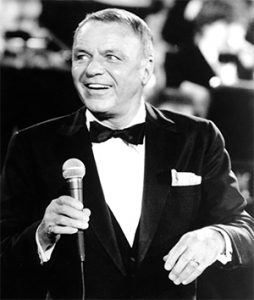Everybody reading this has taken at least one aptitude test in their lifetime. I’ve taken a few of them. The last, and most interesting, was given to me by a prospective employer a few years after graduating from college.
I had developed an interest in the investment business and obtained the first two licenses that would allow me to market investment products. But I had zero clients. I applied to a company that marketed both investment and insurance products. The company paid a salary for two years while giving new brokers a chance to build a business. Since I already had my licenses I told them they wouldn’t have to wait until I passed the tests and wouldn’t face the chance of me not passing. They brought me in for an interview and gave me an aptitude test to determine if I had the personal characteristics to establish myself in the industry.
When I called the company to learn the results of that test, I was informed that I had the second lowest score of anybody who ever took the test—and not just in the Pittsburgh office but in the entire country. The test administrator suggested that I find another occupation.
Twenty five years later, the name of that company has been eliminated, the end result of an acquisition by a larger company. And I’m still in the investment business. Not only am I still in the business but I have a growing practice with a cool website and many insightful and educational articles and essays to my credit. My articles are written for people who may have aptitude, but not for the relevant and valid issues that are investment-related.
I have clients in a wide range of professions. Plumbers, doctors, construction workers, teachers, truck drivers, attorneys, salesmen, accountants, pilots, police officers, business owners, computer programmers, real estate brokers, a judge, a fireman, etc. The list of professions my retired clients came from is just as long.
While my clients do—or did—their occupations well, I have limited or no aptitude for the jobs listed above. But it is not vital that I know how to write computer code, drive a split shift or repair an abdominal aneurysm. It is, on the contrary, vital that my clients have some understanding of the mechanics of the investment markets, the fees associated with their accounts and why I do what I do with their investments. To that extent, I have excellent aptitude for my chosen profession. I also have the unique skill of putting my clients on the learning curve and helping them to advance. Your money is your money. It is important you understand how the “money industry” works for the benefit and safety of yourself and your family members coming down the pipeline after you. Get on the curve and keep advancing.
One of the best stories I ever heard about aptitude concerns clients of mine. These clients own a welding and steel fabrication company. The sons are all trained welders. One of the sons, Raymond, decided he wanted to become an underwater welder. This required attending and graduating from a school in New Jersey that taught the unique craft.
According to Raymond’s own mother, he was less than a stellar student while in high school. She informed me she used to have to sit with him at the dining room table and go over his school work on a regular basis in order to move him onto the next grade. She asked him how he was going to graduate from this specialty school. He informed her that he would find a fellow student who was good at school work but didn’t have strong welding skills. Raymond would teach him everything about welding while that student would help him with the book work.
On the night before he was to leave for school, Raymond decided to go out with his friends for a small going away party. His mother was worried that he would have an accident with his truck and would be left without a vehicle to drive to Jersey. Raymond did what most sons—including myself—would have done. He told his mother not to worry; that he would be careful and would be home early.
Of course, there was an accident and his truck was damaged. Underwater welding school was starting and he needed to get on the road. But he had no truck.
Problem solved. Raymond pulled his old motorcycle out of the shed, started it up and threw on a backpack containing some clothes and essentials. He took the Pennsylvania Turnpike to New Jersey. What makes this story even cooler: it was wintertime.
Raymond did find a bookish student who needed help with the welding. They formed a friendship and both did graduate. Raymond moved to Louisiana and worked as an underwater welder before starting his own business. Today, he designs and installs ornamental iron railings around houses in the New Orleans area. He is now a client of mine and is slowly advancing on the investment learning curve.
And I have yet to do any welding…underwater or above water…but if I decide to do so, I know a good teacher.

